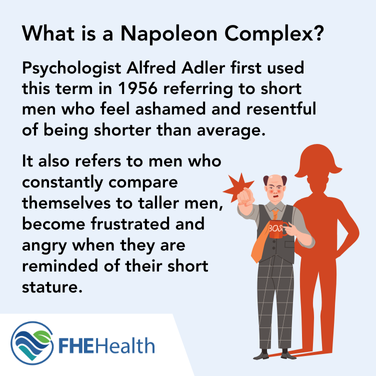
Introduced by Charles Darwin in his 1871 work The Descent of Man, the theory of sexual selection suggests the primary reason for men being taller and stronger than women involves, as Darwin wrote, the “struggle for life.” In other words, men who presented characteristics such as tallness, health and aggressiveness were the most successful in competing for women to reproduce. Consequently, the genes carrying these advantageous traits were passed down through the generations of men to follow.
Research into the validity of the sexual selection theory indicates the association between tall men and general life success is somewhat weak but significant. Tall men seem to benefit from this evolutionary force when accruing marriage partners, children, career success and prestige within their work and social circles.
Evolutionary studies indicate that, in our ancient past, taller men probably had advantages over shorter men, such as running faster, favoring hunting ability or being healthier than short men who may have suffered medical conditions. However, the same advantages do not apply in today’s postmodern world. Still, the social construct of associating tall men with masculinity and superiority over shorter men has persisted for thousands of years, putting social pressure on their shoulders that can make the pros and cons of rehabilitation worthwhile.
What is a Napoleon Complex?
 During the French Revolution, the British government initiated a propaganda offensive against Napoleon Bonaparte, the top general in the French military. Most of the propaganda involved cartoons centered on Napoleon’s small stature and short-tempered personality. Although historians argue about Napoleon’s true height (between 5 feet 2 inches and 5 feet 7 inches), they agree that this propaganda campaign was responsible for the false idea behind the phrase “Napoleon Complex” or “Napoleon Syndrome.”
During the French Revolution, the British government initiated a propaganda offensive against Napoleon Bonaparte, the top general in the French military. Most of the propaganda involved cartoons centered on Napoleon’s small stature and short-tempered personality. Although historians argue about Napoleon’s true height (between 5 feet 2 inches and 5 feet 7 inches), they agree that this propaganda campaign was responsible for the false idea behind the phrase “Napoleon Complex” or “Napoleon Syndrome.”
The famous psychologist Alfred Adler first used this term in 1956 when referring to short men who feel ashamed and resentful of being shorter than average. The Napoleon Complex, based on Adler’s inferiority complex theory, refers to men who compare themselves to taller men, become frustrated and angry about their height, and develop mental health issues from obsessing over it.
The Napoleon Complex is not a clinical mental illness or a personality disorder. It is not included in any of the five Diagnostic and Statistics Manuals published by the American Psychiatric Association that describe all recognized mental illnesses. Unfortunately, this label can be used in a derogatory manner and should not be thought of as a “catch-all” phrase explaining specific behaviors of both short and tall men.
The Perception of Masculinity and Male Self-Esteem
Evolutionary psychologists suggest humans are drawn to symmetrical bodies and faces but repelled by asymmetrical bodies and faces because of the association between deformity, mental deficiency and sickness. Even today, when we see someone with conventionally unattractive facial features, obesity or a genetic deformity, something deep inside of us may recoil in disgust or fear. This knee-jerk reaction to an ancient survival mechanism we try to ignore also influences the perception of short men as less masculine and inferior to tall men.
Men are naturally taller than women because of genetics and hormones. Whether a man is 6 feet tall or 5 feet 3 inches tall depends largely on genes inherited from their parents. However, other factors such as the mother’s health during her pregnancy, childhood nutrition and household environment can also determine the final height of an adult man. Unfortunately, masculinity is defined by social constructs such as muscular build, hair and beard, aggressiveness and height — and these are perpetuated in most patriarchal or male-dominated societies.
The Myth of the Napoleon Complex
Is there proof that shorter men feel compelled to compensate for their height with an unpleasant, combative attitude? The answer to that question would be a resounding no. The myth of shorter men having characteristics of the Napoleon Complex has been debunked in several studies.
One such study conducted by the University of Central Lancashire found that contrary to the stereotype, short men are much less likely to lose their tempers than men of average height (around 5 feet 9 inches in the United States). The authors of the study assert that “if someone sees a short man acting aggressive, they immediately attribute that aggressiveness to the man being short.”
You might blame the stereotype of the Napoleon Complex on the British trying to defeat Napoleon. However, society can hold onto and spread its beliefs in stereotypes when people in that society continue to believe them. Although we have come a long way in realizing that judging anyone based on their physical appearance is wrong and should not be tolerated, it is still pervasive. It can cause shorter men to experience psychological issues.
Treating the Napoleon Complex: Pros and Cons of Rehabilitation
 How a shorter-than-average man feels about his height often depends on whether his parents, family members, or peers consistently brought negative attention to his height. For example, many men who grew up with the nickname “Shorty” don’t seem bothered by their height or their nickname. Others find it more difficult to ignore being teased for their stature, which can lead to the development of a Napoleon Complex. They may develop anger issues or poor self-esteem or overcompensate for their height by bullying others.
How a shorter-than-average man feels about his height often depends on whether his parents, family members, or peers consistently brought negative attention to his height. For example, many men who grew up with the nickname “Shorty” don’t seem bothered by their height or their nickname. Others find it more difficult to ignore being teased for their stature, which can lead to the development of a Napoleon Complex. They may develop anger issues or poor self-esteem or overcompensate for their height by bullying others.
When to Seek Professional Help for the Napoleon Complex
When should men seek professional help for psychological problems that identify with Napoleon Syndrome? If you are a shorter-than-average man who struggles with feelings of resentment, worthlessness, and bitterness towards others, such as women you believe avoid you because of your height, it is worth considering the impact this has had on your mental health. Should these impacts be substantial enough, they may be worth addressing in therapy.
Therapy and Treatment Options
Getting in-depth with uncomfortable subjects can be emotionally taxing for men who are discouraged from expressing themselves. However, untreated depression, anxiety and erratic feelings of anger may lead to substance abuse, problems staying employed and unsatisfying relationships. It tends to be harder for men to talk to friends or family members about overwhelming emotions in a way that helps resolve them.
Overcoming Stereotypes and Building Confidence with FHE Health
FHE Health’s supportive outpatient program involves the use of cognitive behavioral therapy, life skills counseling, and in-depth discussions with caring therapists who can explain how to cope effectively with stereotyping without resorting to overcompensation.
If you or someone you know seems to be reflecting characteristics of a Napoleon Complex, it is worth addressing.






